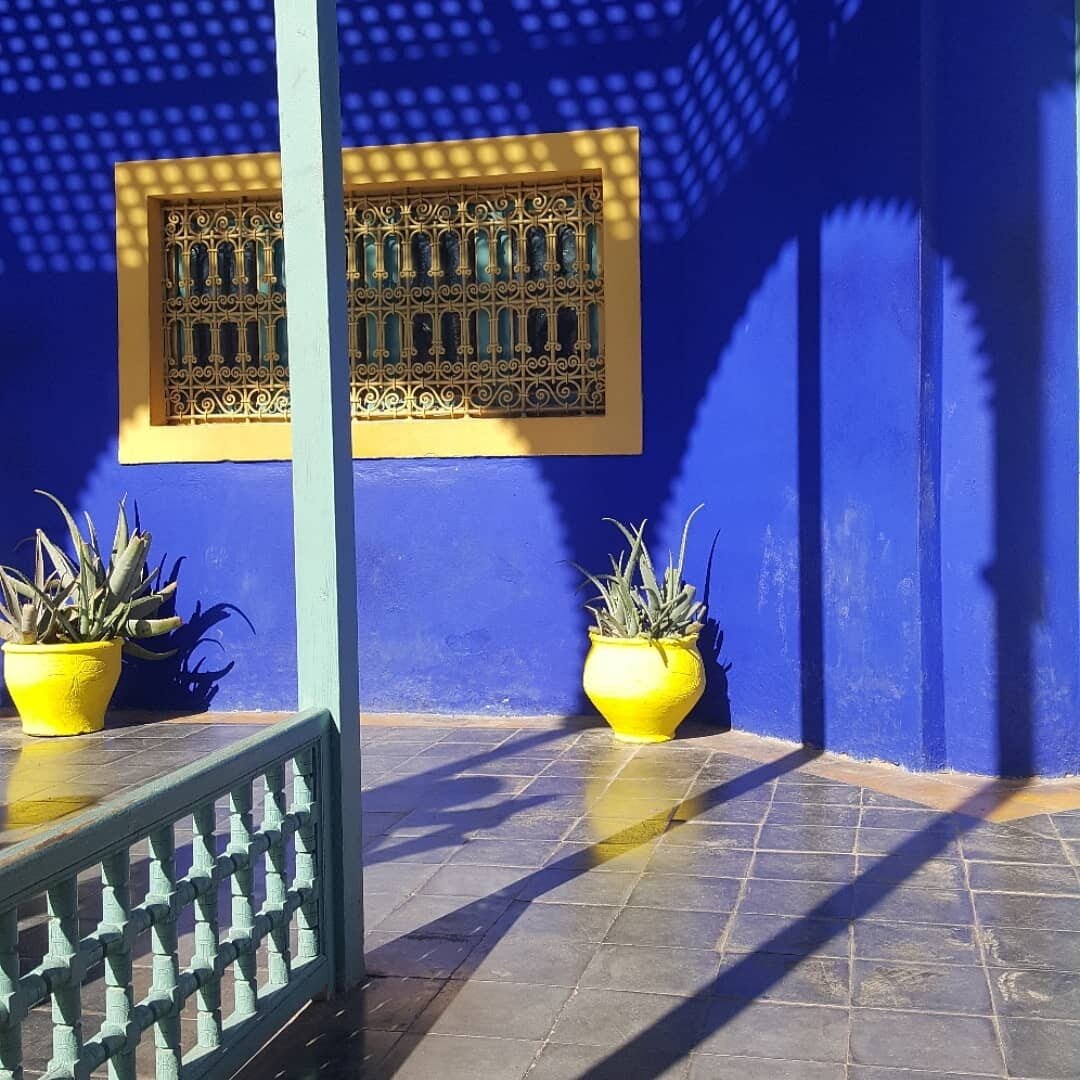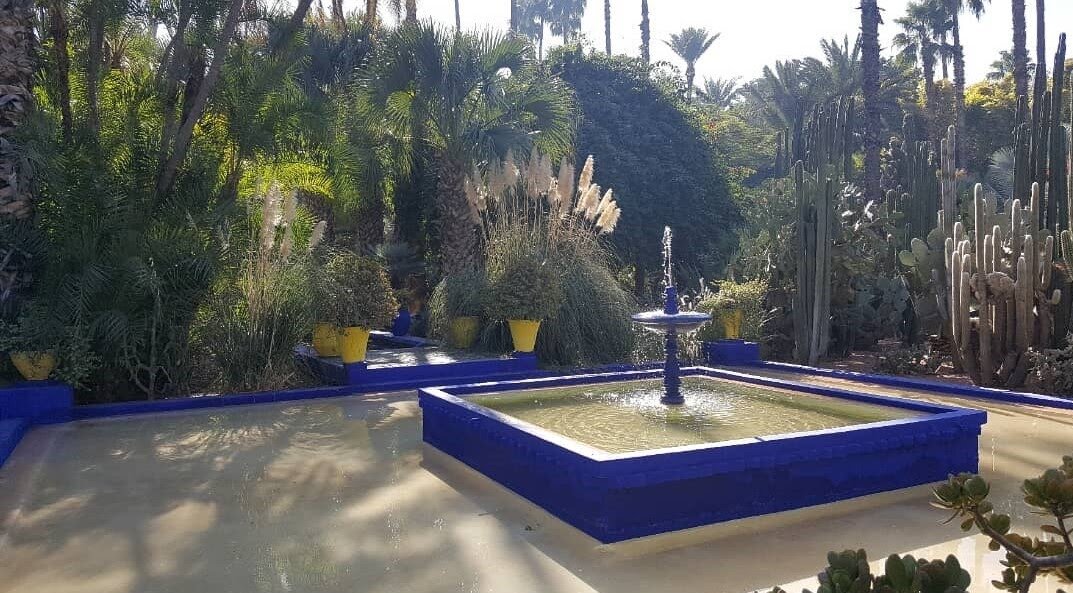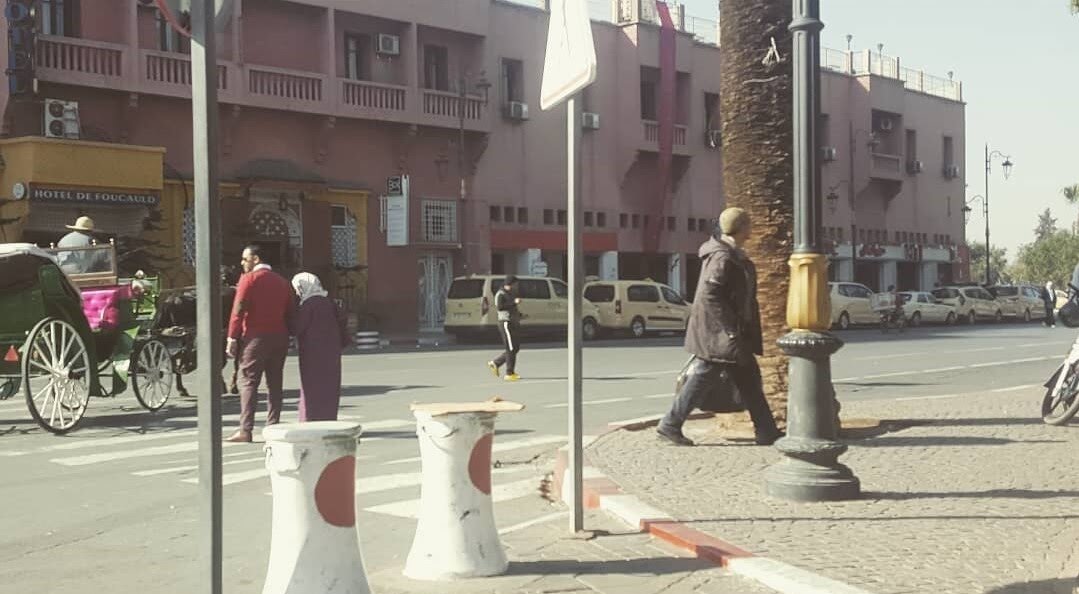“Much Loved”
Childhood in a Pretty Bubble
I was born and raised in beautiful Marrakech, Morocco. I say beautiful, because that’s what you’ll probably see on Instagram or Pinterest - pictures in Chefchaouen, Marrakech or Dakhla with gorgeous views. Morocco is known to be a rather peaceful country, you don’t hear much about it in the news. A Google search on Morocco will likely generate ads for some cheap flights and 5-star hotels. I was raised in a privileged environment, living in a lovely French neighborhood and going to a French school. Simply put, I was completely disconnected from reality. A lot of people I know, mostly from my school and including my own family, are living in a bubble. I, however, no longer am.
Leaving The Cocoon
Arab Spring
Reality hit me at the age of 17, when I left home for the capital, Rabat, to study politics. The same year, the ‘Arab Spring’ started in the region. I was naive and knew nothing about the situation in Morocco: the Western Sahara conflict, the Human Rights violation, the religious groups, etc. All I knew came from the news. I hadn’t even studied Moroccan history in school, it was all about France. I started going to protests and listening, paying attention. I got involved with the ‘February 20th Movement’. I never told my parents because they would disagree. They are simple people who don’t need any additional problems in their life, much like many Moroccans.
The Movement embodied a lot of things. What had caught my attention was the slogan ‘Freedom, Dignity, Social Justice’. They fought for my rights as a woman and an atheist because they wanted individual freedoms (e.g. living with a partner without being married, or eating during Ramadan in public without being put in prison). These things rang a bell for a teenage girl seeking her freedom. But they also fought to free prisoners of conscience, to stop torture and injustice. Torture? I was shocked! This can’t be happening in my Morocco, which ended with Hassan II.
No… it did not end.
We still have, until today, secret prisons where Moroccans and non-Moroccans are being tortured day and night. Yes… the U.S. has recently admitted to subcontracting torture in Morocco (Temara). They send ‘bad people’ to us and we ‘take care’ of them.
Islam
I wasn’t raised in a particularly religious family. I would describe my family’s Islam as ‘festive’. We mainly remember religion during Eid, Ramadan, or difficult times. I decided I didn’t want to be a Muslim at the same age (17) because I didn’t like women’s position in that religion (or any other, for that matter). So I became an atheist. A rather spiritual one. I then met a few other atheists. I must say that this came as a shock. I thought I was the only atheist in Morocco. Yes, that is how much we knew about each other…
We were trying to recognize each other, very carefully, before ‘coming out’ to one another. It’s not something you would shout from rooftops. I lived with a lot of secrets at this point and couldn’t stand being with my family anymore - I felt like a hypocrite. I started giving hints here and there, and finally, I got a beautiful surprise. I was still loved and accepted, I was considered an adult and free to make my choices. What a relief! If only my friends could open up to their families and be understood. If only all Moroccans could be loved and understood. I was struggling with the fact that we had to lie, hide to do anything we liked. I decided to leave.
Change From Within
[Before the decision to leave]
Around that time, at the age of 18, I founded my own NGO. I had been involved with Amnesty International and other national Associations and NGOs, as well as some political parties. One thing they didn’t do properly was educate people. So I decided to go for it. One of our objectives was to popularize the complex legal texts with the aim of allowing access to information to the less fortunate. A large number of Moroccans are illiterate - either literally or figuratively, meaning they can read and write, but fail to understand their most simple rights. We created the Common University - for the people. No matter the age or social status, regardless of whether one has a degree or not - everyone was welcome. I was so proud.
I wanted men and women to understand their rights. I wanted children to get the right support for their schooling, so we had a sponsorship system where university students would help children with their homework. We went to schools and helped renovate them, we were in the media, it was becoming quite something. Quickly, reality hit again, our classes got shut, speakers backed up, local authorities wouldn’t allow us to use any public space for events… We were tired.
Exodus
After the failure of the February 20th Movement and my own personal attempts to keep going, I left Morocco. The Movement had been hijacked. Due to corruption, some of the leaders preferred their own socio-economic security and ‘sold the match’, as we say in Morocco. I had been involved with a few political parties, been invited to speak in conferences, met with Ministers, et cetera… I was sexually harassed, I wasn’t being taken seriously, I realized I would never be able to keep up with that mentality.
I thought I would pursue a career in the diplomatic field; I will represent my country abroad. After all, in addition to my passion for public affairs, I speak foreign languages and love traveling. I then went to study in several European countries.
I studied Diplomacy and wrote about the issue of Western Sahara in my dissertation. I worked with a professor in Oxford who had studied the conflict for 40 years. I was an intern at the UN in Geneva. I went back to Morocco, excited to share my knowledge and experience. I was met with rejection: they didn’t accept my degree.
They sent me a tiny letter in a squashed yellow envelope (that my mother compared to a divorce letter) saying that my degree was not equivalent to the Master’s degree in Morocco. I tried to apply for jobs with my Moroccan undergraduate degree, with honors, but to no avail. I couldn’t understand… Well, I sort of do, now... I went back to Europe, to be an intern at the EU and study with the goal to move on. I wanted to do some research (PhD) and see what happens. I knew Morocco was infamous as the land of lost talents and would only recognize your success when you succeeded abroad. This is when a whole new story unraveled.
A new page
I wanted my PhD to focus on ISIS’s recruitment. I wanted to understand the reason why so many people, from all over the world, all socio-economic categories, left everything and everyone for the so-called Islamic State. While reading and researching, one thing led to another, I found myself on the dark side of the internet, listening to a Moroccan ex-Muslim, who was involved with terrorist groups, before he became a ‘kafer’. His story intrigued me. His videos led me to Republican Moroccans’ videos. What? ‘Republican’? I thought we were living in a monarchy. Most of them were atheists. Morocco’s dark side started to unfold. The king, whom I used to see as an innocent monarch surrounded by a corrupt government and disconnected from the people, was behind it all. He owns every company and foreign franchise in the country. Morocco has phosphate, petrol, gas, gold, diamonds, and many more natural resources, all under his name. With such wealth, no one should be hungry in Morocco, no one should be homeless. Where does the money go? Why is no one questioning him? Don’t they know that he decides on everything: constitution, laws, decrees, and that he’s the face of the country abroad?
I discovered a darker side that led me to believe that only a revolution will help save Moroccans and Morocco. Change will never come from within the institutions. Why? Simply due to the fact that the king, who is allegedly a descendant of the prophet of Islam, takes his legitimacy from Islam. No one can question the ruler according to religion. Why would he give up all this money and power and say ‘here you go, be a democracy’? Rights are seized, not granted. I decided to give up. What’s the point? Anyone who speaks out , not about the king of course, no one would dare, but about his camp, gets kidnaped, arrested, tortured, and never sees the light of a day again. Mohamed VI considers Morocco to be his father’s land that he inherited, and Moroccans are a flock of sheep living here. If you don’t like it, leave it. The doors of the Mediterranean are open for you, feel free to risk your life for Spain, Europe, the Eldorado - after all, it’s only 14 km away. If you want to live in it, pretend you don’t see injustice, until the day it hits you. The regime, the ‘makhzen’, encourages brain drain, silence, corruption, lies, injustice, torture, prostitution, pedophilia, etc. What is the reputation of Marrakech? Isn’t it a prostitution paradise? If you haven’t watched it yet, ‘Much loved’ is on Netflix. I know that reality is only a small portion of the ugly truth.
I started to see everything as fake: the news, the politicians, the ‘intellectual’ class, everyone seemed corrupt. It’s like I was living a lie and my eyes suddenly opened. I could not unsee it.
The revolution won’t happen anytime soon because people are too afraid to speak up. Also, because the regime makes sure to implant an idea in their heads: ‘do you want to be the next Libya or Syria?’. Therefore, the best option is to leave, stir the conversation, and hope that people will eventually wake up.
Marrakech, The Red
I miss the smells and the sounds in the streets. I miss the ocher-colored walls. I miss the sun caressing my skin. I miss my family. I miss living in a massive house and comfort, I won’t lie about that. Life is harder in Europe, in some aspects. I miss the jokes, no one understands my dialect here. I miss the flavors. I miss the solidarity in people, I miss so many people. I am missing so many events and years are just passing by. I cry thinking about the way I left because I never said goodbye. I wasn’t supposed to stay in Europe, I was supposed to get a degree and come home. But, that transition never happened.
However, my mental image of my homeland has been ruined and it’s too painful for me to even visit family anymore. Now, Arab men would follow me in Gueliz, Jemaa El Fna, or Carré Eden. Each time I sit in a café or walk somewhere, I end up in a fight with one of them. NO. Not all Moroccan girls are prostitutes. Marrakech feels different, we are treated differently because we are locals. If you asked a Marrakchi person today, they would complain that taxis don’t stop for them, that customer service is rubbish. They only treat you nicely if you’re rich or a foreigner. My father jokes about a cup of coffee being cheaper in central London or Paris than in Marrakech. Everything is overpriced and it’s almost like prostitution has been normalized. I went there recently with my husband, who’s not Moroccan, he certainly felt good about himself. He noticed how girls were hitting on him. Luckily, I’m not the jealous type. But I didn’t like it at all. At our hotel, a staff member asked me if I met him through Facebook, I said to her ‘no honey, I traveled there, studied, worked, then met and married him’. My husband doesn’t speak Arabic, but he understood. He asked me if she’s looking for her Prince Charming to save her. I felt so ashamed. I feel embarrassed writing it now.
What should I expect? Moroccan youth is divided between the young males who try to reach Europe by risking their lives at the sea and Moroccan females who sell their bodies and souls to feed their family, hoping to meet their Prince Charming on the way. I’m generalizing a bit, of course; there are many positive things happening in Morocco, many young people are creating their own opportunities, but let’s face it - they’re a minority. If you don’t know what I mean, search for Moroccan trends on Youtube and other social media platforms, you’ll see what the majority follows.
I understand that the contrast between rich and poor exists everywhere, we live in a world reigned by duality. However, injustice can be overcome and we must allow ways for the poor to dream and achieve socio-economic ascension through education. The fact that there is a glass ceiling is something that has ultimately become unacceptable for me and I cannot live in the hypocrisy anymore.
Today, there is a movement/petition in Morocco, #stop490, which is advocating to stop the practice of article 490 of the penalty code which punishes "with imprisonment from one month to one year, all persons of different sex who, not being united by the bonds of marriage, have sexual relations with each other".
To be frank, I have stopped participating in the public debates in Morocco, I am quite pessimistic. However, I’m happy when I see these kinds of initiatives, and I undoubtedly encourage them.
So many anecdotes come to mind. But the bottom line is - I don’t feel at home there anymore. I’m unable to see the beauty in our streets, instead, I now notice the looks, the beggars, the children selling Kleenex. Living abroad is called ‘ghorba’. Well, now Morocco feels like ‘ghorba’ to me. Ghorba for me is living somewhere where you cannot be authentic, where you are not yourself, and where everything around you feels foreign and strange. I was raised to respect people, to appreciate punctuality, to be honest, to be kind, and so many other things that I don’t find in Morocco but are present here. I am not in ghorba, I am at home.





